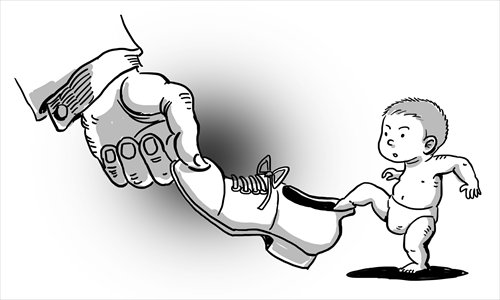Myanmar public happy to see back of restrictive sanctions

The EU's decision to lift all Myanmar sanctions a year after they were initially suspended has reignited debates around whether the country has made enough progress to warrant such a reward. Activists have decried the move, insisting that human rights abuses continue and that the EU should have put benchmarks in place for the Myanmar government to meet before sanctions were finally lifted.
This ignores the fact that sanctions never had any impact on the former military junta, and that President U Thein Sein's request to have them removed is based more on what sanctions represent symbolically rather than economically.
In addition, the removal of sanctions finally allows for international aid and loans to be given to Myanmar, for the country to grow in line with its ASEAN neighbors. So why do sanctions still raise such disagreements?
Myanmar is going through a reform process that is not without difficulties, not least with the ethnic and religious conflicts in the states of Kachin and Rakhine.
But focusing only on this ignores the enormous progress that has been made in the last five years.
The reform process started well before the 2010 elections, and driven by the top leadership, policy followed the "road map to democracy" that had been clearly laid out in 2003.
The road map foresaw a handover by the military leadership to a civilian government after elections. This happened in April 2011.
The new government, led by President Thein Sein, then moved to start a reconciliation process with Aung San Suu Kyi and the National League for Democracy, as well as a peace process with the various ethnic armed groups.
Both efforts have born fruit. Suu Kyi is now an elected MP and sits in parliament, heading various committees. She herself has advocated the removal of sanctions to help the development of Myanmar.
On the ethnic front, all groups apart from the Kachin Independence Army (KIA) have signed a cease-fire and are involved in peace talks with government representatives.
While the Kachin conflict has not been resolved, there are regular meetings between the KIA and the government that everyone hopes will in time lead to peace in Myanmar's northern regions.
In addition, the government has initiated widespread economic reforms, including unifying the exchange rates, and more recently has started a Comprehensive Education Sector Review, leading to education reform.
International agencies and NGOs are supporting the government's endeavor. But beyond loans and aid, foreign direct investment and multinational companies entering the Myanmar economy are also extremely important.
Myanmar's economy has been closely tied to China and ASEAN countries. Diversification will allow more business, better jobs and for the whole economy to grow.
However, for this to be a lasting success, sanctions need to be lifted entirely, so that businesses have the confidence that they will not be called upon to leave the country at short notice.
What is often forgotten is that the Myanmar people have themselves often called for sanctions to be removed.
Between 2011 and 2012 it seemed that despite releasing the political prisoners, engaging with Suu Kyi and removing press censorship, the goalposts were perpetually being moved and nothing the government did would ever be enough.
By dropping the sanctions, the international community in general and the EU in particular are showing that they have confidence in the new government and trust the president to do the right thing.
A transition such as the one Myanmar is going through will always bring challenges. Today the government has to find a way of quelling the anti-Muslim violence around the country.
However, keeping the sanctions in place would mean that all the progress that has been made would remain unacknowledged.
In the end, activists and pressure groups should want what the Myanmar population thinks is best for itself.
No one in Myanmar has wanted sanctions for many years now. It is good that finally the Myanmar voices have been heard and that the policy reflects the new reality on the ground.
The author is a South Asia expert with the Yangon-based Myanmar Egress, a nonprofit organization founded by Myanmar scholars and social workers. opinion@globaltimes.com.cn
Counterpoint: EU move puts human rights on back burner in Nay Pyi Taw